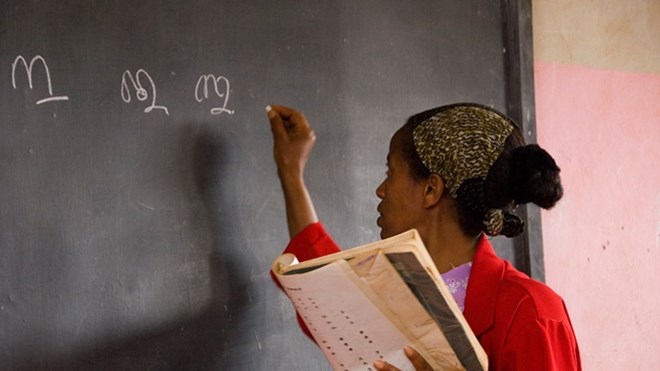According to a senior UN official, Ethiopia is going through one of the world’s worst crises in education, primarily because of internal strife and the effects of climate change.
At Education Cannot Wait (ECW), the global fund for education in emergencies and protracted crises established at the World Humanitarian Summit, Graham Lang, chief of education, stated that “more than 3.6 million children across Ethiopia are out of school directly as a result of conflict and climate-induced disasters.”
According to estimates from the Ethiopian government, over 13 million children are not enrolled in school there, and Lang recently told Xinhua that this number has been rising quickly owing to internal strife over the previous two years.
According to Lang, 500,000 Ethiopian children missed school over the past six months as a result of climate-related crises, mainly drought.
Lang said that 222 million children and teenagers worldwide are affected by forced migration and crises, and that the African continent is the area most severely affected by protracted and frequently ignored crises.
The security crisis in the Sahel region, which includes Mali, Burkina Faso, the Democratic Republic of the Congo (DRC), as well as throughout East Africa, has led to enormous internal displacements, which have a significant negative impact on children’s and adolescents’ rights to education, according to Lang, who was speaking about the effects of conflict and instability on access to education in Africa.
He emphasized that populations in crisis-affected areas are incredibly resilient and that it is crucial for education to continue even during times of instability and security issues in Africa.
The rights of children and adolescents are being upheld even in the most destructive crises, according to Lang. “We are seeing how governments, local actors, and international organizations are rallying around to adapt and respond to those changing circumstances,” Lang said.
The official stated that financing shortage continues to be a significant obstacle to ensuring that children and adolescents in Africa may exercise their right to an education despite increased demand, capability, and resilience for education in crisis-affected areas.
The recent floods in the Chad and the drought in the Horn of Africa, which includes Somalia, Kenya, and Ethiopia, are only two examples of the numerous climate-related disasters that occur in Africa, according to Lang.
ECW’s director of education has emphasized the value of education in fostering peace and urged for teamwork to support young people in conflict-affected parts of Africa in getting access to education.
“Peace can be attained through education. Promoting resilience and encouraging tolerance, mutual respect, and the capacity for negotiation are extremely essential; peace cannot be attained without an educated populace “said he.
Lang continued by saying that promoting climate-sensitive practices and minimizing the effects of climate change both depend heavily on education.

